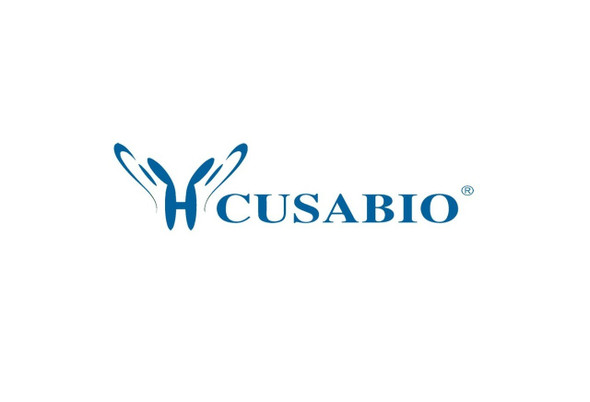Cusabio Polyclonal Antibodies
ITCH Antibody, Biotin conjugated | CSB-PA839346HD01HU
- SKU:
- CSB-PA839346HD01HU
- Availability:
- 3 to 7 Working Days
Description
ITCH Antibody, Biotin conjugated | CSB-PA839346HD01HU | Cusabio
ITCH Antibody, Biotin conjugated is Available at Gentaur Genprice with the fastest delivery.
Online Order Payment is possible or send quotation to info@gentaur.com.
Product Type: Polyclonal Antibody
Target Names: ITCH
Aliases: E3 ubiquitin-protein ligase Itchy homolog (Itch) (EC 2.3.2.26) (Atrophin-1-interacting protein 4) (AIP4) (HECT-type E3 ubiquitin transferase Itchy homolog) (NFE2-associated polypeptide 1) (NAPP1), ITCH
Background: Acts as an E3 ubiquitin-protein ligase which accepts ubiquitin from an E2 ubiquitin-conjugating enzyme in the form of a thioester and then directly transfers the ubiquitin to targeted substrates. It catalyzes 'Lys-29'-, 'Lys-48'- and 'Lys-63'-linked ubiquitin conjugation. It is involved in the control of inflammatory signaling pathways. Is an essential component of a ubiquitin-editing protein complex, comprising also TNFAIP3, TAX1BP1 and RNF11, that ensures the transient nature of inflammatory signaling pathways. Promotes the association of the complex after TNF stimulation. Once the complex is formed, TNFAIP3 deubiquitinates 'Lys-63' polyubiquitin chains on RIPK1 and catalyzes the formation of 'Lys-48'-polyubiquitin chains. This leads to RIPK1 proteasomal degradation and consequently termination of the TNF- or LPS-mediated activation of NFKB1. Ubiquitinates RIPK2 by 'Lys-63'-linked conjugation and influences NOD2-dependent signal transduction pathways. Regulates the transcriptional activity of several transcription factors, and probably plays an important role in the regulation of immune response. Ubiquitinates NFE2 by 'Lys-63' linkages and is implicated in the control of the development of hematopoietic lineages. Critical regulator of T-helper (TH2) cytokine development through its ability to induce JUNB ubiquitination and degradation (By similarity) . Ubiquitinates SNX9. Ubiquitinates CXCR4 and HGS/HRS and regulates sorting of CXCR4 to the degradative pathway. It is involved in the negative regulation of MAVS-dependent cellular antiviral responses. Ubiquitinates MAVS through 'Lys-48'-linked conjugation resulting in MAVS proteasomal degradation. Ubiquitinates MAP3K7 through 'Lys-48'-linked conjugation (By similarity) . Involved in the regulation of apoptosis and reactive oxygen species levels through the ubiquitination and proteasomal degradation of TXNIP. Mediates the antiapoptotic activity of epidermal growth factor through the ubiquitination and proteasomal degradation of p15 BID. Targets DTX1 for lysosomal degradation and controls NOTCH1 degradation, in the absence of ligand, through 'Lys-29'-linked polyubiquitination. Ubiquitinates BRAT1 and this ubiquitination is enhanced in the presence of NDFIP1 (PubMed:25631046) .
Isotype: IgG
Conjugate: Biotin
Clonality: Polyclonal
Uniport ID: Q96J02
Host Species: Rabbit
Species Reactivity: Human
Immunogen: Recombinant Human E3 ubiquitin-protein ligase Itchy homolog protein (29-303AA)
Immunogen Species: Homo sapiens (Human)
Applications: ELISA
Tested Applications: ELISA
Purification Method: >95%, Protein G purified
Dilution Ratio1:
Dilution Ratio2:
Dilution Ratio3:
Dilution Ratio4:
Dilution Ratio5:
Dilution Ratio6:
Buffer: Preservative: 0.03% Proclin 300
Constituents: 50% Glycerol, 0.01M PBS, pH 7.4
Form: Liquid
Storage: Upon receipt, store at -20°C or -80°C. Avoid repeated freeze.
Initial Research Areas: Cell Biology
Research Areas: Cell biology






